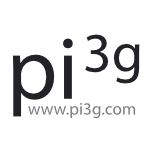Commercial comparison Nvidia Jetson Nano / Raspberry Pi + Coral USB / Coral Devboard
A customer approached me about what our recommendation is for developing a product which has integrated AI capabilities, and their respective price points and long-term availabilities, and volume availabilities.
This is a commercial comparison of these platforms, in an easy to peruse table, including pricing information.
| product | Coral Devboard 1 GB / 4 GB | Coral Devboard Micro | Raspberry Pi 4 + Coral USB | NVIDIA Jetson Nano |
| CPU | Quad-Core ARM Cortex-A53 @1.5 GHz | MCU: NXP i.MX RT1176: ARM Cortex-M7 @ 800 MHz and ARM Cortex-M4 @ 400 MHz | Quad-Core ARM Cortex A72 @ | Quad-Core ARM Cortex A57 @ 1,43 GHz |
| RAM | 1 GB / 4 GB LPDDR4 | 64 MB SDRAM | choice of 1 GB / 2 GB / 4 GB / 8 GB LPDDR4 RAM | 4 GB LPDDR4 RAM |
| inference | 4 TOPs int8 EdgeTPU connected via PCIe | 4 TOPs int8 EdgeTPU connected via USB 2.0 (= lower throughput) | 4 TOPs int8 EdgeTPU connected via USB 3.0 | 472 GFLOPS 128-core NVIDIA Maxwell™ architecture GPU |
| mass storage | 8 GB / 16 GB eMMC built-in | 128 MB built-in | requires additional microSD card | requires additional microSD card |
| extra features | camera connector for EOL Coral Camera (not commercially available anymore) | integrated 324 x 324 px color camera + microphone lower power usage (microcontroller platform) | one MIPI-CSI camera connector 2 x USB 3.0 ports (one of them occupied by Coral USB) | two MIPI-CSI camera connectors for stereo vision 4 x USB 3.0 ports |
| price | 145 USD (1 GB) 210 USD (4 GB) | 85 USD (Coral Devboard Micro) Optional add-ons: 22,10 USD (Wireless Addon) 27,30 USD (PoE Addon) | Coral USB: 64,5 USD + +35 USD (Pi 4/1 GB) = 99,5 USD total +45 USD (Pi 4/2GB) = 109,5 USD total +55 USD (Pi 4/4GB) = 119,5 USD total +75 USD (Pi 4/8GB) = 139,5 USD total | 149 USD |
| long-term availability | available as long as there is commercial demand. A lifecycle extension of up to 3 years is possible, given an appropriate forecast. | available as long as there is commercial demand. A lifecycle extension of up to 3 years is possible, given an appropriate forecast. | Raspberry Pi 4: at least until January 2031 Coral USB: available as long as there is commercial demand. A lifecycle extension of up to 3 years is possible, given an appropriate forecast. | January 2027 (for the Jetson Nano module) |
Note: the Jetson Nano operates with floating point data for the model, vs. the Coral module, which operates with int8 quantized data for the model (e.g. weights). TOPs = trillion operations per second vs. GFLOPS = billion floating point operations per second. Operating with floating point data also allows to train models (albeit slowly on the Jetson Nano), vs. the Coral series which can only run models. There are other trade-offs, like power efficiency, etc.
For the Coral Devboard 4 GB, currently a new 4 GB RAM module is being evaluated – therefore it is not available ex stock.
If you need the lowest price point, or the lowest power usage, go with the Coral Devboard Micro.
Note, if you need network connectivity, and can use more power in your project, the Raspberry Pi 4/1GB and Coral USB combination is a better choice.
If you need an integrated and compact solution, the Coral Devboard 1 GB or 4 GB solutions might be a good choice, albeit at a higher price point than the Raspberry Pi equivalents. Also note, that Raspberry Pi OS has a much bigger community behind it than Mendel Linux.
If you need Floating Point operations to run your model (i.e. you can’t quantize it to int8 very well), or four USB 3.0 ports for your application, you can go with the Jetson Nano.
Devboard Mini
The Coral series also has a Devboard Mini product, which sits between the Devboard Micro and the Devboard 1 GB from a performance perspective. It offers built-in Wireless networking capabilities. The Coral TPU module is connected using USB 2.0, so performance is lower than on the Raspberry Pi or “full” Devboard platforms. One big advantage of this module is it’s very compact footprint.
Price point: 98,57 USD
